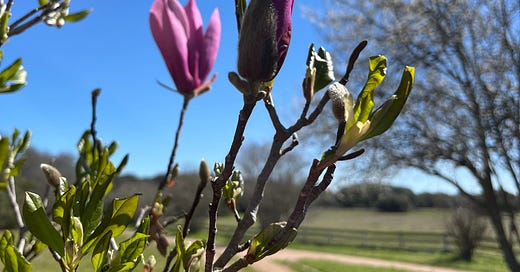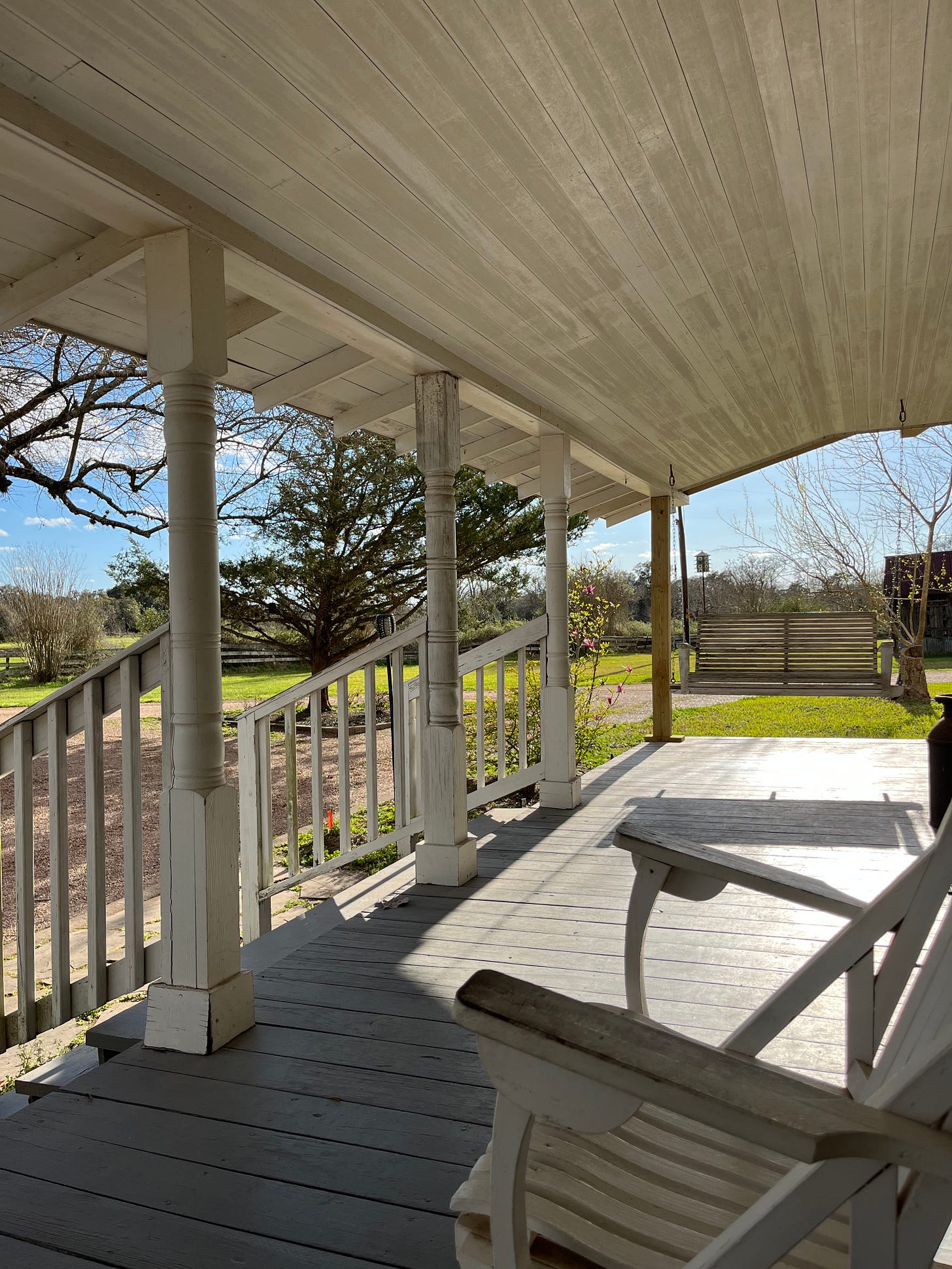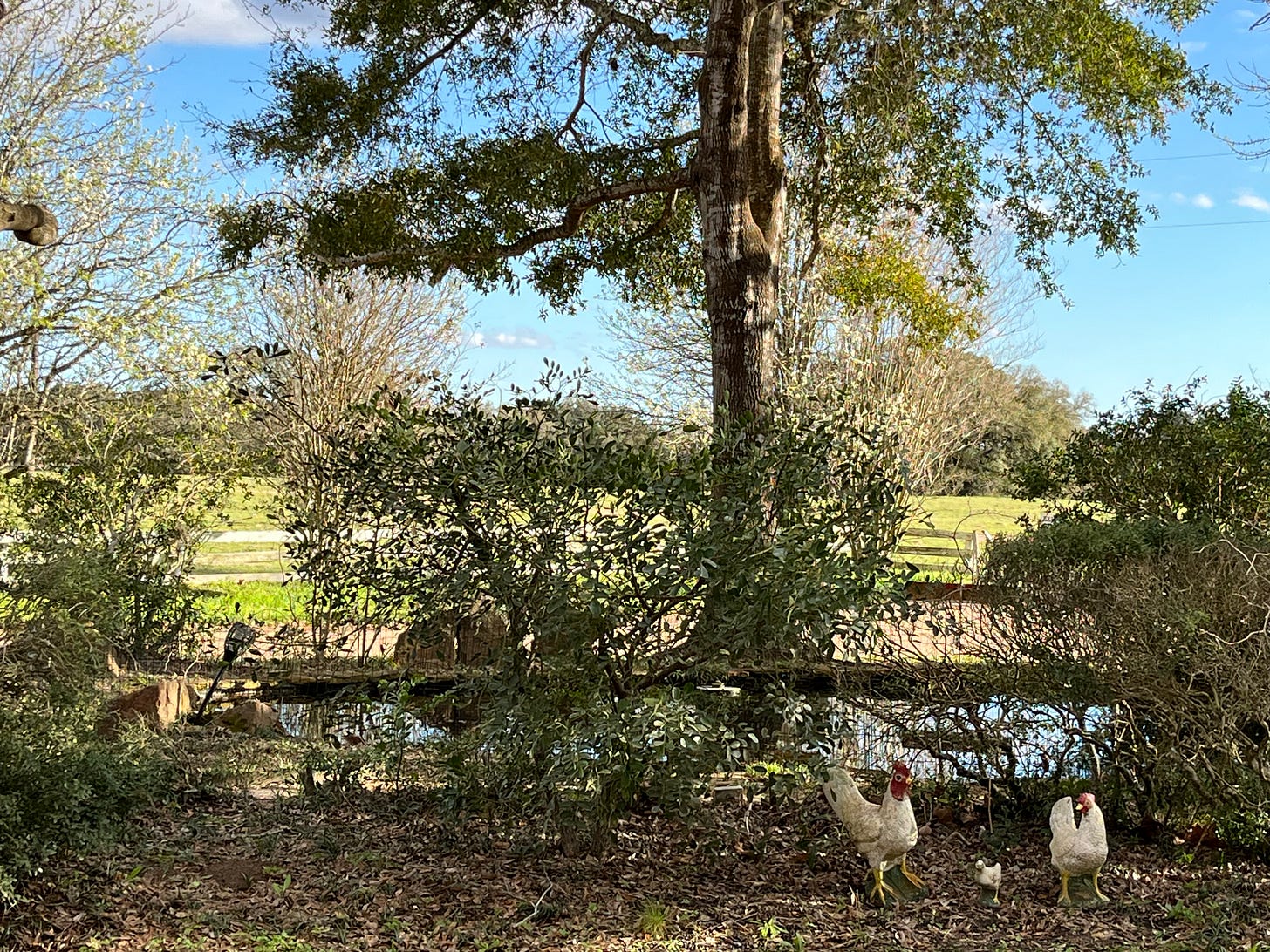[image: Japanese magnolia, Cat Spring, TX, photo by author, March 2025]
Some habits die hard. One of mine is shutting up when I have nothing new to say. Another is waiting to speak when in truth I have a lot to say but of the kind that can only be said in a new story.
The recent quiet here is explained by the latter, not the former. I’m happy to say that a chapter of that novel in progress will appear in the forthcoming inaugural issue of The Colosseum, which hasn’t posted yet, but which you can check out here when it does.
The chapter isn’t that representative of the whole of the work, except in tone. It’s an attempt to take the material of the künstlerroman that’s treated so soberly in my previous novel and make it less sober and more funny, by way of fitting it into a larger arc to do with community and the polis.
Perhaps if we aren’t trying to find the comedy in community and polis these days, we’re all at risk to drift with the tide and wash up in despair; I am trying to fix a Jamesian “strong stake” to keep myself and others out of that particular Charybdis and just praying I don’t smash on various all-too-convenient rocks in the effort.
Anyway the quiet is also to some extent explained by life. I got my incorrigibly overcivilized mind way offline this spring break and went with my family out to a little cabin about an hour outside the city. We walked the dirt roads and met some ancestrally patient horses who were unfazed by the children’s adulation and took some shockingly cold swims (well, some of us did) and played board games and ate one too many muffins and observed wildlife and read on the porch just a whole lot. I finished Okey Ndibe’s Foreign Gods, Inc. and Roberto Bolaño’s By Night in Chile and a re-read of James Joyce’s Dubliners. The only prose I can make about this (without going into obsessive detail about each book) sounds plodding but I assure you it was quite a ride.
The best of it was just to be able to enter in, like James’s protagonist in “The Great Good Place” while the secretary minds the shop, and let the chattering part of the mind take five and defragment itself. Too often in the past, given time for rest like this, I have wasted it feeling guilty that I’ve been given it and agitating over how I can turn it to account for some other purpose, or generating endless to-do lists for when it’s over, or laboriously readjudicating the many conversations on the nature of leisure which the philosophers had first and said better.
Probably you yourself are too wise to fall into any such traps. But even if they sometimes catch you—especially then, especially in view of the labors that lie ahead—it’s great whenever you can escape.
[View from the front porch. Those are fake roosters, but I thought a lot about O’Connor on her porch watching the peafowl, especially after having just been in Iowa City to speak about her work and legacy for her centennial.]
Lent feels very necessary this year, almost refreshing. It isn’t always: some years it can seem terribly heavy, a burden layered on other burdens. The year with Agnes, and the year after we lost her, both felt like that. Other times there can be what a friend used to call a “dolorous”—deliciously sad, black-and-gold baroque—feeling about Lent that the melancholics among us can really revel, not to say wallow, in.
This year every mental image I have is of clearing ground, burning browned leaves, shoring up new growth under sky and rain. I don’t know if it’s the (dubious, checkered) progress of the writing or the works-and-days or what. But “though [I] have considered all the facts” [Berry] it feels incorrigibly, perhaps dangerously, like hope.






